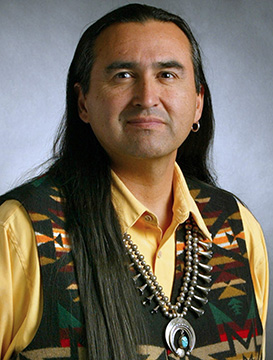From the Editor
Our Mission Demands the Most Effective Training Available

Making disciples of Jesus from every tribe, tongue, people and nation is the most important job in the world. It not only transforms the lives of people here in this world but also for all eternity in the next. Few jobs are as difficult as this one—we have a powerful adversary who is working against our every effort. If this is true, should we not employ the most effective means available to prepare every believer in Jesus to accomplish this mission of making disciples who are able to disciple others? Does not a mission of such critical importance demand our very best efforts? Literally, the eternal destiny of billions of people hangs in the balance.
So how are we doing in preparing believers to make disciples in every tribe and tongue? Are we using the very best training methods—so effective that others are seeking to copy them? Are we giving this critical task our very best efforts?
Unfortunately, often the opposite is true. The church generally uses the least effective means available to make disciples and to train others to do so. And the sad fact is that in some cases we are actually doing less today than we were in previous generations. No other profession in the world uses the Church’s methods to prepare its people for various jobs because they know that these methods do not work.
To train our people to make disciples we ask them to sit in a church and listen to lectures (sermons) week after week for years. Participation in Sunday school used to be expected for adults, but increasing numbers of churches have even done away with this modest avenue of training as well. Note taking is not required during these lectures; no tests are given; no outside reading or study is required; no opportunity for “student” discussion of the material presented in the lecture is provided. There is no one available to supervise or mentor the “student” toward mastery of the information and skills required to become an effective disciple-maker.
In the realm of academia this process would be called auditing a course. In such cases no academic credit is given because everyone in academia knows how ineffective this process is in enabling a student to gain competency in a particular subject. They know that only about 10% of what is given by lecture alone is remembered. In effect the majority of believers in Jesus are “auditing” the Christian faith. They have become passive participants in the most critical mission in the history of the world and most pastors and church leaders are content with continuing this means of “training.” But it is not working to equip most believers for the essential work of making disciples who disciple others.
So after undergoing hundreds, if not thousands, of lectures in church we send out these “trained” disciple-makers to peoples, tribes and tongues all over the world with the goal of making disciples and planting churches without ever having proved that they can do these tasks within their own culture. The job of doing so cross-culturally is many times more difficult.
Please do not misunderstand me. I am not saying that having worship services where the Word is preached is wrong or should be done away with. My life has been changed by some sermons. The problem arises when this is the primary means that is employed to equip all believers for the work of ministry. The worship service is not an effective means of training people in disciple making and should not be relied on as the primary means to accomplish this vital task. Many churches have small groups that could be effective venues for training in disciple making if they are focused on doing so. Real Life Ministries is one church that does this well. (See Jan-Feb 2011 MF)
Discipling someone must be a highly intentional, personal relationship between people where the disciple is trained in the process of making disciples by actually doing it, not just hearing about it in a sermon. It seems so basic but people learn by doing not by simply listening. I would never want to be operated on by a surgeon who simply listened to hundreds of lectures on how to do surgery. Neither should we send out disciple-makers with similar preparation.
Some will say that we train many people in Bible schools and seminaries with high academic standards. This is true but these institutions usually teach people biblical information to be mastered, not skills in discipleship and church planting that can be reproduced in the lives of others. When was the last time you heard of a Bible school or seminary in the West requiring students to demonstrate a mastery of disciple-making or church planting as a prerequisite for graduation? Also relatively few believers are able to receive this type of training.Our goal must be that every willing believer is trained as a disciple-maker.
Jesus Showed Us How
Jesus modeled for us the most effective methods for making disciples and the rest of the world has copied his methods while the Church has largely abandoned them. For three years Jesus spent most of his time mentoring or discipling 12 men, day in and day out. These disciples learned by watching and listening to the master and then going out on their own to practice what they had seen lived out before them. Then they came back for debriefing and correction. This was not just a sit and listen means of training. This was hands-on practice whereby skills and competency were mastered.
Throughout the centuries the world has often adopted this means of training and applied it to many occupations. There has been a long history of apprenticeship in many professions where those who have learned various skills are able to pass them on to others. See the article, “The Guild,” starting on page 10 where the centuries-old model of apprenticeship is being applied to the training of today’s missionaries.
We have a long way to go toward developing effective training for all believers to be disciple-makers but we must commit ourselves now to move in this direction. Approaches like the T4T Process (see page 18) and the Discovery Bible Study Method have been presented in recent issues of MF. They are an excellent place to start in developing the skills for the most important job in the world.
 A Tribute to Dr. Richard Twiss, 1954-2013, Co-Founder & President of Wiconi, Intl.
A Tribute to Dr. Richard Twiss, 1954-2013, Co-Founder & President of Wiconi, Intl.
I want to take a moment to pay tribute to a friend and fallen warrior for Jesus. Richard Twiss died February 9, 2013, from a heart attack. Richard grew up as a member of the Sicangu Lakota Oyate people of the Rosebud Lakota Sioux Reservation in South Dakota. He met Jesus in 1974 and came to understand that as a Native American he did not have to completely reject his heritage and culture in order to follow Jesus. Since then he has led thousands of others both Native and non-Native alike to this same understanding. He said, “Why does the Native American have to exchange his sin-soaked culture for someone else’s sin-soaked culture?”
No other ministry leader has had so significant an impact in pioneering new contextual approaches to reaching Native Americans as Richard Twiss. I have never known a more eloquent advocate for contextualizing the gospel for Native American peoples as well as for all the other unreached peoples around the world.
Richard was a great friend of the US Center for World Mission and he was instrumental in helping to pull together two different issues of Mission Frontiers—one in Sept-Oct. 2000 and more recently in Sept-Oct 2010 titled, “Making Jesus Known.” Through his work with MF, I came to value him as a friend as well as a respected colleague working on behalf of the unreached. His voice will be missed, but what he has started will live on in the lives of the thousands he has inspired with his vision of contextual ministry among the Native peoples of America and beyond. Pray for God’s grace and power to be poured out upon Wiconi, Intl. as they move forward in their mission to reach Native peoples without their founder. Go to http://www.wiconi.org for more information on their ministry.
Share Mission Frontiers with Everyone You Know
1. Share, Share, Share—Share the articles you like with all of your friends through Facebook, Email, Twitter, Google, Yahoo etc. There are icons on the webpage of each issue and each article that allows you to share the best of MF with everyone you know.
2. “Like Us” on Facebook—Let all of your friends on Facebook know about MF and that you “like us.”
3. Put a Link to MF on Your Website or Blog—Link your website to ours so that your friends can learn about us. Also consider reprinting articles from MF on your website. See restrictions below under reprinting articles.
4. Print and Email the PDFs—Every recent issue of MF and the individual articles are available for you to download from our website. Just click on the PDF icon for the issue or article and it will automatically download to your computer, iPad or other devices. Feel free to print and distribute as many copies of the PDFs as you like – no restrictions.
5. Reprint Articles from MF—Do you have a non-profit magazine, newspaper, church newsletter or personal prayer letter to which you have access? Articles that originate with MF do not need prior permission to be reprinted as long as you give us credit as the source for the article. If it says “reprinted by permission of...” in the article, you must go to that original source for permission to reprint.








comments